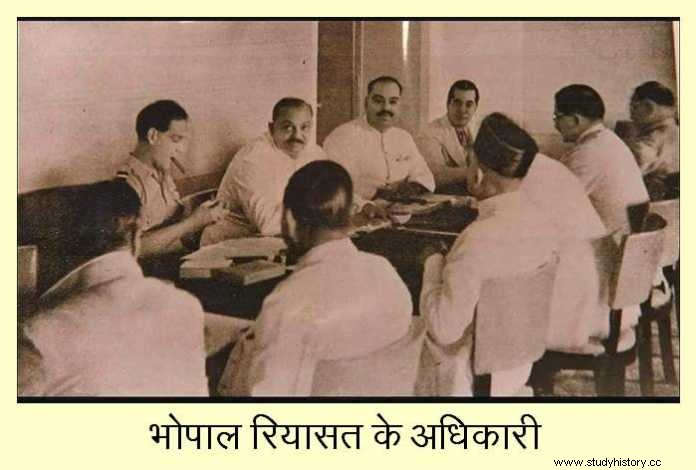
Corefield's efforts
Conard Corfield was the Secretary of the Political Department of the Government of India and considered the princely states as the real India, with whom he had deep sympathy. Therefore, Corfield, through residents and political agents, inspired the native kings to remain separate from the Indian Union. Corfield wanted at least two or three states in which Hyderabad was the predominant one, to escape the clutches of the Congress.
The rest of the princely states should also be made as difficult as possible to join India. Corfield circulated among the princely states that they had not two or three paths before them, they could join either of the two colonies or even remain independent. With the efforts of Corfield, Travancore and Hyderabad declared that they would not join any colony but would remain as independent countries.
Constitution of Princely Department
To break the vicious circle of the corefield, the princely department came into existence on 5 July 1947 under the leadership of Sardar Patel. The Congress hoped that this iron man would pack his dhoti and go after the kings. Patel alone was heavy enough to deal with the plans of Hamidulla Khan, Corfield and Ramaswami Iyer and to encircle the independent princely states in the Union of India. VP Menon was appointed advisor and secretary to Patel.
It was believed that he was the only officer who could solve the complex problems of the native states. The combination of Patel's vigorous personality and Menon's flexible mind proved even more dangerous on this occasion. In the background, seasoned politicians like Sardar K. M. Pannikar, V. T. Krishnamachari and eminent ministers of Indian princely states and senior officers of the Indian Civil Service like C. S. Venkatachara, M.K. Vellodi, V. Shankar, Pandit Hari Sharma etc. experienced people were working.
Patel told Menon that- 'Pakistan is working with the idea that it should annex some of the border states. The situation is carrying such dangerous possibilities that the freedom which we have got after facing great difficulties may be lost at the door of the states.'
merging on only three subjects
There were five weeks left in the date of independence. On the one hand, the corefield was engaged in the work of eradicating the central power from the princely states before the end of the British rule, due to which all the arrangements were being canceled one by one. On the other hand the Sardars were in a quandary as to how to talk about maintaining every arrangement of the kings before 15th August, which the British had started canceling, such as maintaining the army, post, etc.?
Menon suggested to the Sardar that the kings should be asked to merge only three subjects. These three subjects were related to defence, foreign affairs and communication. With permission from Patel, Menon sought help from Mountbatten in this work. Menu Mountbatten accepted the request.
On 5 July 1947, Patel appealed to the kings- 'They should join the Union of India before 15th August 1947. The native states would have to hand over three subjects of public interest - defence, foreign affairs and communications to the Union, which they had approved during the Cabinet Mission Plan. The Indian Union was not asking for anything more from him. The Union does not intend to interfere in the internal affairs of the native states. The policy of the princely department in dealing with the states will not be that of authority. Congress has not been against kings. The native kings have always expressed their faith towards patriotism and public welfare.'
Patel also warned the kings that- 'If any king thinks that British supremacy will be transferred to him, then it will be his mistake. Supremeness lies in the people.' In a way, this declaration was an invitation to the kings to join India on the basis of common existence. This proposal, in the words of Sardar, was better than the subordinate treaty made by the princely states with the British government in the past.
In this way, the first dice was thrown by Patel and Menon for the merger of the native kings into the Union of India, as a result of which King Sadul Singh of Bikaner once again immediately welcomed this announcement of Sardar Patel and requested his brother kings that They should hold the hand of friendship thus extended and give full support to the Congress so that India can achieve its goal quickly, but most of the kings believed that they should listen to Corfield instead of Patel.
